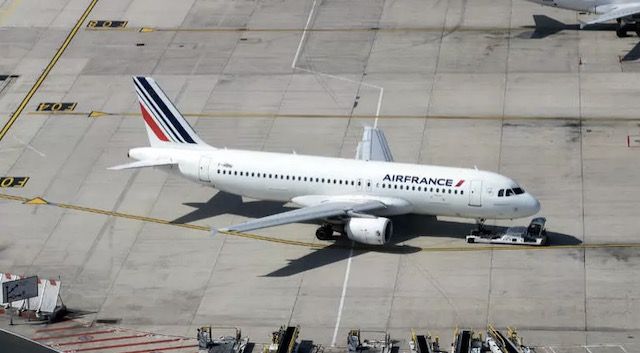Escalating Travel Disruptions as French Air Traffic Controllers Continue Strike
The second day of a strike by French air traffic controllers has caused widespread disruption across European skies, with thousands of flights cancelled and millions of passengers affected. The ongoing industrial action has led to chaos during the peak of the summer holiday season, creating significant challenges for travelers, airlines, and related industries.
Flight Cancellations Reach New Heights
According to official figures, more than 1,100 flights either departing from or arriving in France were cancelled on Friday, while hundreds of flights that would have passed over the country were also affected. This marks a sharp increase compared to the previous day, when approximately 933 flights were called off. Paris airports, in particular, faced severe disruptions, with passengers struggling to navigate the constantly changing schedules on departure boards.
The timing of the strike has been especially inconvenient, as it coincides with the final day of school in France before the summer holidays begin. Many families are now facing unexpected delays or cancellations, adding to the frustration of those planning their trips.
Passenger Reactions and Challenges
Sabrina Taristas, a 42-year-old traveler, was among those affected. She had planned to fly to Toulouse but found her journey disrupted by the strike. “We can’t go against the strike, but it’s definitely a real inconvenience for us travelers,” she said, expressing her disappointment.
The strike was initially expected to end on Friday evening, with no disruptions anticipated on Saturday. However, the impact on travel plans is likely to persist for some time, as airlines scramble to rebook affected passengers.
Impact on Hotels and Local Businesses
The travel chaos has also rippled into other sectors, particularly the hospitality industry. Hotels in cities with major airports, such as Nice and Paris, have reported a surge in cancellations. According to the UMIH hotel and restaurant union, many travelers are canceling bookings, leading to concerns about financial losses for businesses.
Veronique Siegel of the UMIH union noted the growing tension, saying, “There’s a bit of panic among those arriving and those leaving, airlines are trying to rebook their customers, it’s complicated to manage and it’s going to cost them a lot.”
In Nice, the airport reported 200 flight cancellations on Thursday and 220 on Friday, affecting around 50,000 passengers. The situation has created uncertainty for both tourists and local businesses.
Government Condemns the Strike
The French government has strongly criticized the strike, calling it an unacceptable act of disruption. Prime Minister Francois Bayrou condemned the decision to strike on the final day of school, stating that it effectively held the public hostage. Transport Minister Philippe Tabarot echoed this sentiment, describing the strike as “unacceptable” and highlighting the impact on over 500,000 people.
The strike was initiated by two unions—UNSA-ICNA and USAC-CGT—who are protesting against chronic understaffing, the introduction of a clocking-in system, outdated equipment, and what they describe as “toxic management practices.” These issues have raised concerns about safety and operational efficiency in the sector.
Broader Impacts Across Europe
The effects of the strike extend beyond France, with hundreds of flights overflying the country also being cancelled. The European Airlines for Europe (A4E) association reported that 1,500 flights were cancelled in Europe on Thursday and Friday, affecting 300,000 passengers. The organization also highlighted that the strikes caused nearly 500,000 minutes of delays on Thursday alone, impacting nearly 33,000 commercial flights.
Ryanair, Europe’s largest airline by passenger numbers, confirmed that over 400 flights were cancelled due to the strike. CEO Michael O’Leary has called for legal protections for overflights in case of future strikes, arguing that 350 of the affected flights would not have been cancelled if such measures were in place.
Airport Responses and Ongoing Concerns
Schiphol Airport in Amsterdam also reported disruptions, with around 30 flights cancelled on Friday. An airport spokesperson said that airlines had taken the precaution of cancelling these flights to avoid further complications.
As the strike continues, the focus remains on resolving the crisis and minimizing long-term damage to the tourism and travel sectors. With the summer holiday season in full swing, the disruptions have underscored the importance of stable and reliable air traffic control systems.







